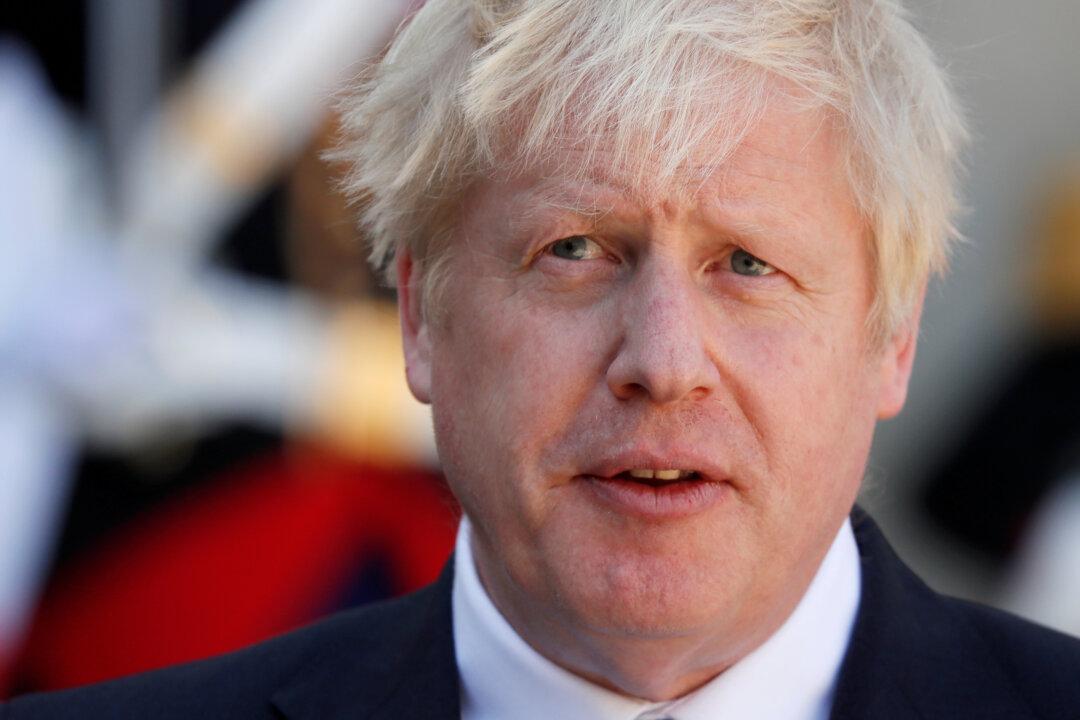British Prime Minister Boris Johnson on April 12 expressed his thanks to the National Health Service (NHS) staff who treated him for COVID-19, saying he owes them his life.
Johnson, 55, praised the “exemplary” care he has received from staff at the state-run NHS at St. Thomas’ Hospital in London, where he was admitted on April 5 and spent three nights in intensive care until April 9.





